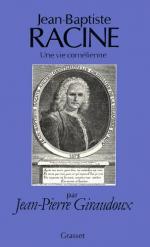|
This section contains 3,229 words (approx. 11 pages at 300 words per page) |

|
SOURCE: "On Phèdre as a Woman," in The Collected Works of Paul Valéry: Occasions, translated by Roger Shattuck and Frederick Brown, Bollingen Series XLV, Princeton University Press, 1970, pp. 185-95.
A prominent French poet and critic, Valéry is one of the leading practitioners of nineteenth-century Symbolist aestheticism. His work reflects his desire for total control of his creation; his absorption with the creative process also forms the method of his criticism. In his prose, Valéry displays what is perhaps his most fundamental talent: the ability to apply a well-disciplined mind to a diversity of subjects including art, politics, science, dance, and aesthetics. His critical writings are collected in the five volumes of Variéte (1924-44; Variety) and his personal notebooks, the Cahiers (1894-1945). In the following excerpt from an essay originally published in 1942, Valéry ruminates upon the psychological inferences of Phèdre's character.
After...
|
This section contains 3,229 words (approx. 11 pages at 300 words per page) |

|


